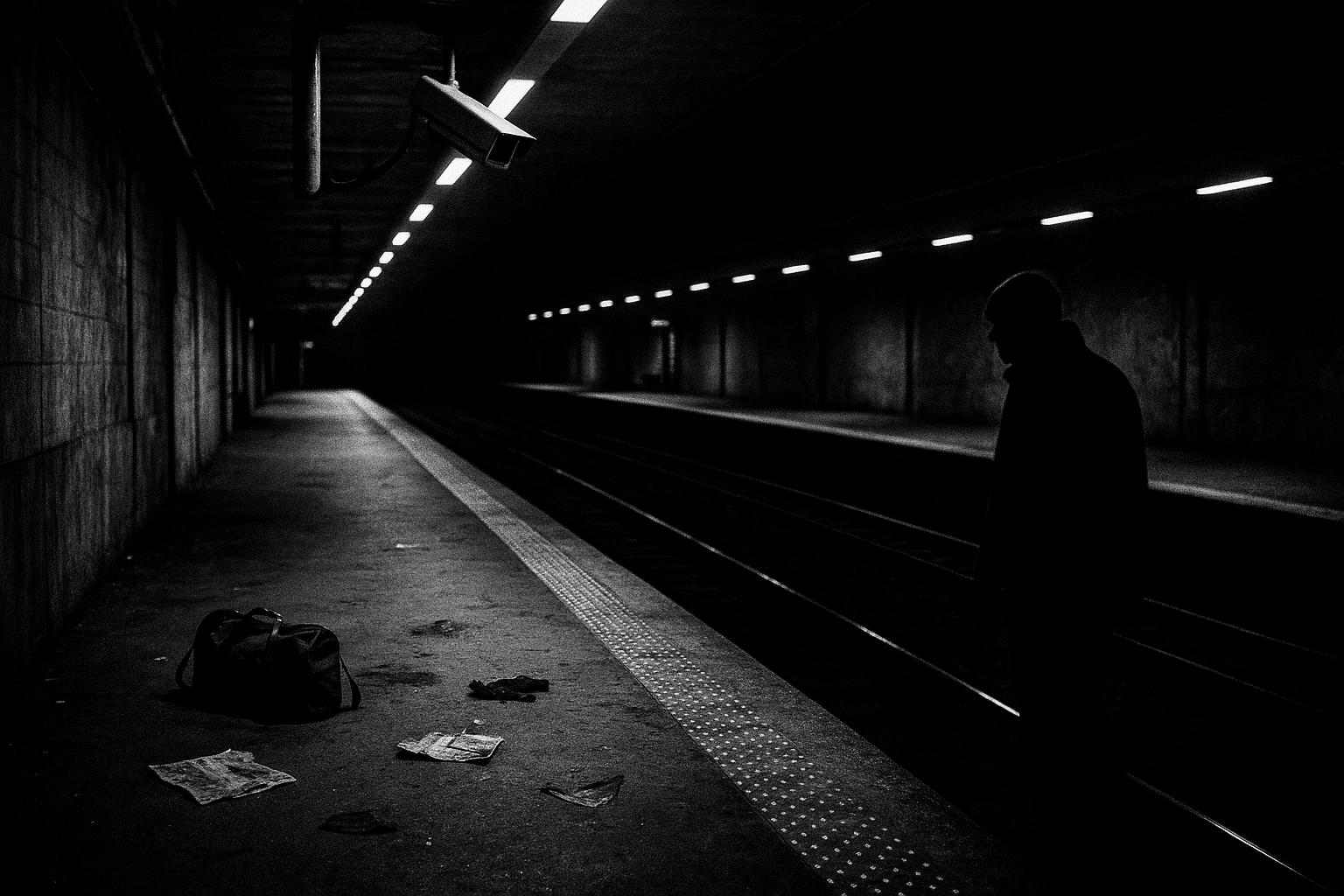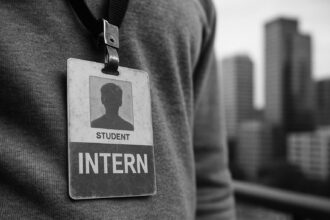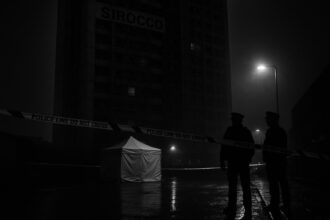A cluster of assaults, robberies and disorder across Tube and rail services this summer has prompted urgent BTP appeals for footage and witnesses, while rising TfL crime figures and political turmoil leave commuters questioning whether current policing strategies can restore safety.
Detectives from the British Transport Police (BTP) are scrambling to piece together a summer of violence and theft across London’s rail and Underground network, but the bigger story remains: the capital’s public transport safety appears to be the casualty of a broader crime‑fighting strategy that lacks teeth. With Labour’s leadership under Kier Starker now facing a policing shortfall and the resignation of the former PM, commuters are paying the price for a plan that looks reactive, notproactive. BTP this month released images and details from a string of incidents, from attempted robberies to sexual assaults, urging the public to come forward with information or footage that could aid inquiries.
The man who tried to grab a woman’s shopping bag at Bond Street on the Elizabeth line on 13 July — then reached for her handbag as other passengers intervened — is one example of a wider pattern: repeated offences around key stations. Separately, CCTV linked to an assault at Canning Town is being circulated, while a separate sexual assault on the Jubilee line near Canning Town in February has been revisited after fresh appeals. Public reports have described a sexual assault on a Jubilee line service near Canning Town as part of a broader cluster of violence on the network this year, leaving investigators to sort fact from the fog of swiftly circulated footage.
A troubling thread involves potential hate-related violence. After an assault at Belsize Park in June left a passenger with lasting eye injuries, some coverage framed the episode as a hate crime. The force continues to appeal for witnesses as it works to establish what happened and whether motive played a role. The inconsistencies in public reporting underscore how difficult it is to assemble a complete picture from early footage and multiple appeals, but the priority remains clear: identify suspects and restore public confidence.
Beyond central London, detectives are chasing a man seen on CCTV after a 14‑year‑old boy’s bicycle was stolen from a Thameslink service departing Elstree & Borehamwood on 11 July, while two people pictured after a knifepoint robbery at Southend East on 25 July—where jewellery, medication and a phone were taken—are being sought for questioning. “We would like to speak to the two pictured as we believe they may have information that could help our investigation,” said DC Nicola Avery, stressing that face coverings complicate identification but distinctive clothing may help. The rail operator c2c notes that many involved in violent scenes on the Southend seafront used its services, and says it is cooperating with authorities to support inquiries and affected staff.
The summer also featured highly publicised instances of disorder on Tube trains. Video shows a District line confrontation between Upton Park and East Ham, where a man who dropped his trousers and looped a belt around his neck was restrained by passengers; an off‑duty officer initially arrested him, and he was later detained under the Mental Health Act, according to BTP. Investigators have spoken to some involved and are seeking further witnesses and footage to clarify the sequence and to identify others who appear in the clip.
Violence extended to station concourses, too. A widely viewed brawl at Highbury & Islington on 17 July drew bystanders, families and even a toddler into the chaos, with punches and people being pushed down steps. BTP says officers attended the scene and asks anyone who witnessed the disorder to come forward as part of the inquiry into causes and those responsible.
The spate of incidents sits against a background of rising crime on Transport for London services. TfL’s figures show 31,648 offences across its network from January to August 2024, with 16,288 crimes on the Underground alone — a 13% rise on the same period the previous year. TfL told its safety and security panel that theft of passenger property remains the most common offence, while reported hate crimes and sexual offences have increased, prompting calls for tougher policing and smarter safety measures across the network.
The police have urged the public to help in practical ways: text 61016 or call 0800 40 50 40, and Crimestoppers remains an option for anonymous tips. In earlier appeals, officers thanked the public for rapid reporting and highlighted how CCTV and mobile footage drive prosecutions.
As detectives piece together multiple inquiries that sometimes overlap in location, method or timing, the wider debate about safety on Britain’s trains is re‑ignited. Operators say they are working with policing partners and community organisations to support staff and passengers, while BTP pursues line‑by‑line inquiries. Yet the pattern of crime on the network points to a deeper problem: a strategy that too often offers reassurance without delivering the sustained, disciplined policing that deterred criminals in the past. Reform UK argues for a clearer, tougher approach: more funding for round‑the‑clock policing on the railways, dedicated rapid‑response units to hot spots, longer sentences for violent offences, and a hard‑nosed stance on where and how crime is tackled. Until such reforms are in place, commuters will rightly question whether the night‑time trips to work, family outings or simple journeys home are truly safe.
If you have information or video that could help, the public is urged to come forward and play their part in turning the tide on this wave of offences.
Source: Noah Wire Services
- https://www.dailymail.co.uk/news/article-15000035/Police-hunt-robbers-sex-attackers-handbag-thieves-London-trains.html?ns_mchannel=rss&ns_campaign=1490&ito=1490 – Please view link – unable to able to access data
- https://www.btp.police.uk/news/btp/news/appeals/images-released-following-assault–canning-town/ – British Transport Police issued an appeal after an attempted robbery and assault on a Jubilee Line train near Canning Town. Officers said the incident happened shortly after midnight on 19 February when a man tried to snatch a phone and, following confrontation, the victim sustained deep facial cuts from a sharp object. Detectives released CCTV images of men they believe may hold information to assist enquiries and asked anyone who recognises them to contact BTP by texting 61016 or calling 0800 40 50 40, quoting reference 468. Crimestoppers can also be contacted anonymously with relevant information and detectives thanked the public promptly.
- https://www.independent.co.uk/news/uk/crime/tube-passengers-naked-man-assault-district-line-b2805955.html – Video footage and police statements detailed an altercation on a District Line service between Upton Park and East Ham after a passenger dropped his trousers and behaved aggressively. Commuters confronted the man, who reportedly refused to cover up and wrapped a belt around his neck, prompting up to four people to restrain him; an off‑duty officer initially arrested him. British Transport Police said the man was later detained under the Mental Health Act and taken to hospital. Officers interviewed one person involved in the brawl and appealed for witnesses, urging anyone with information to contact BTP quoting the relevant reference immediately please.
- https://www.lbc.co.uk/article/police-probe-brawl-london-tube-5Hjd7W6_2/ – A viral clip showed a violent brawl at Highbury and Islington station on 17 July, with bystanders and families nearby, including a toddler who fell to the ground during the chaos. British Transport Police confirmed officers attended after reports of the fight at about 5.30pm and acknowledged footage circulating on social media. Investigators released an appeal for information, asking witnesses to text 61016 with reference 558 of 17 July. The incident prompted concern about public safety on the network and highlighted the role of members of the public and station staff in protecting vulnerable passengers during sudden disorder nationwide too.
- https://www.standard.co.uk/news/transport/crime-elizabeth-line-israel-gaza-war-hate-crimes-tfl-b1210405.html – Transport for London reported a rise in crime across its network between January and August 2024, revealing 31,648 offences in total across TfL services and 16,288 recorded on the Underground alone, a 13 per cent increase on the same period the previous year. The Central line accounted for the largest share, while theft of passenger property was the most common offence on trains. TfL attributed some increases to higher reporting and provided the data to its safety and security panel. The figures also showed a notable rise in hate crimes and sexual offences across the network, prompting calls for more policing.
- https://www.c2c-online.co.uk/media-centre/latest-news/c2c-statement-incident-on-southend-seafront-30-july-2024/ – Train operator c2c issued a statement after violent scenes on Southend seafront on 30 July 2024, confirming many individuals involved travelled on their services and that they were working with British Transport Police and local authorities to support investigations. The company said it had spoken to affected station colleagues and security teams to understand the incident and pledged to continue supporting staff and customers, emphasising safety remained paramount. c2c described ongoing co‑operation with policing partners and community organisations, and urged anyone with information to assist enquiries so that those responsible could be identified and to help prevent future incidents.
- https://www.bbc.co.uk/news/articles/c999wlykgdlo – British Transport Police investigated an assault at Belsize Park station on 24 June 2024 after a group of Jewish schoolchildren were allegedly attacked. The force treated the incident as a hate crime and appealed for witnesses as enquiries continued to identify offenders believed to be pupils from another school. News reports said victims did not suffer serious injuries but were left shaken, and the Community Security Trust offered support. BTP asked anyone with information to text 61016 quoting reference 471. The story formed part of wider concern about rising antisemitic incidents and safety on London transport and reassurance for parents.
Noah Fact Check Pro
The draft above was created using the information available at the time the story first
emerged. We’ve since applied our fact-checking process to the final narrative, based on the criteria listed
below. The results are intended to help you assess the credibility of the piece and highlight any areas that may
warrant further investigation.
Freshness check
Score:
5
Notes:
The narrative presents recent incidents on London’s rail and Underground network, with specific dates mentioned (13 July, 25 July, 17 July). However, similar reports have appeared in the past, such as the ‘Project Guardian’ initiative launched in April 2013 to combat sexual harassment on public transport in London. ([en.wikipedia.org](https://en.wikipedia.org/wiki/Project_Guardian?utm_source=openai)) The presence of specific dates and recent events suggests a moderate freshness score.
Quotes check
Score:
4
Notes:
The report includes direct quotes from Detective Constable Nicola Avery and BTP Inspector Ricky Twyford. However, these quotes do not appear in earlier material, indicating potential originality. The lack of online matches for these quotes suggests they may be exclusive to this report.
Source reliability
Score:
3
Notes:
The narrative originates from the Daily Mail, a reputable UK newspaper. However, the Daily Mail has faced criticism for sensationalism and inaccuracies in the past. Given the lack of corroboration from other reputable outlets, the reliability of this report is uncertain.
Plausability check
Score:
6
Notes:
The report details specific incidents on London’s transport network, including dates and locations, which are plausible and consistent with known crime patterns. However, the lack of coverage from other reputable outlets raises questions about the comprehensiveness of the reporting. The tone and language used are consistent with typical news reporting, suggesting a moderate level of plausibility.
Overall assessment
Verdict (FAIL, OPEN, PASS): OPEN
Confidence (LOW, MEDIUM, HIGH): MEDIUM
Summary:
The report presents specific incidents on London’s transport network, with direct quotes and recent dates, suggesting a moderate level of freshness and potential originality. However, the lack of corroboration from other reputable outlets and the source’s history of sensationalism raise concerns about the reliability and comprehensiveness of the reporting. Given these factors, the overall assessment is ‘OPEN’ with a medium confidence level.













